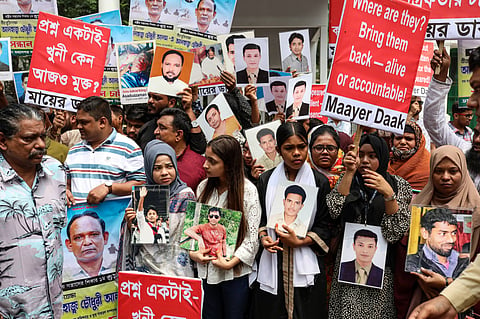An April 2025 protest in Dhaka demanding the arrest and trial of alleged perpetrators of enforced disappearances and extra judicial killings during the Sheikh Hasina regime. Bangladesh’s interim government has chosen to pursue accountability through the country’s International Crimes Tribunal, but there are internal weaknesses and problems with the law governing the ICT.IMAGO / NurPhoto
Politics
Bangladesh’s flawed attempt at transitional justice after Sheikh Hasina
The Muhammad Yunus-led interim government, constrained by its own limitations and a volatile political climate, risks continuing the abuses of the Sheikh Hasina regime in its efforts at transitional justice
“I WANT THEM TO BE HANGED,” said Umama Fatema, one of the students who brought down the government of Bangladesh last summer. “But I think we have to send them to the International Criminal Court.”
I had asked her about a few dozen figures of the old regime currently in jail in Dhaka, men and women who had enjoyed unassailable authority over 180 million Bangladeshis under the former prime minister Sheikh Hasina. In August 2024, that came to a dramatic end after Umama and her fellow protesters spent three weeks on the streets of Dhaka, defiant in the face of Hasina’s brutal but unsuccessful crackdown.

